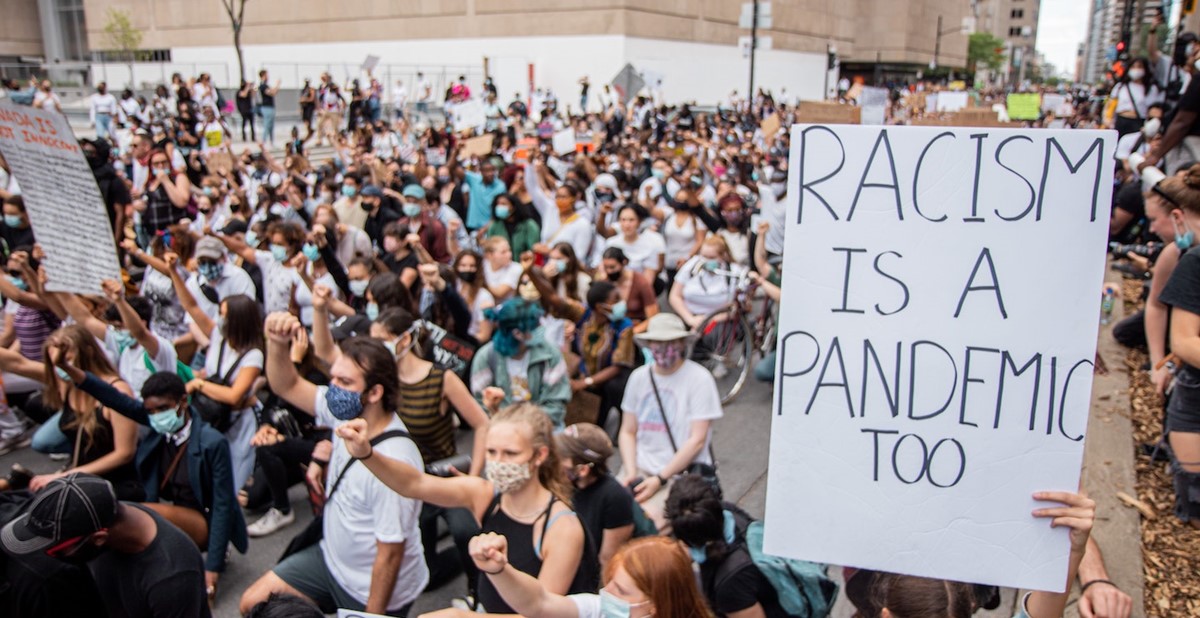Water Cooler: Customers Want Brands To Take A Stance

Black Lives Matter Protest In Montreal / YIng Ge / Unsplash.com
In July, it was widely but incorrectly reported that grocery store chain Trader Joe’s would be changing the branding of its ethnic food packaging after more than 1,700 people signed an online petition describing some of the chain’s brands as “racist.” Trader Joe’s packages and sells its ethnic foods using variations of the name “Joe”: Trader Ming’s is Chinese food, Trader Joe San is Japanese food, Trader José is Mexican food, Arabian Joe is Middle Eastern food and Trader Giotto is Italian food. The online petition, created by 17-year-old high school student Briones Bedell on Change.org, is just one example of people taking a stance on issues surrounding race relations and equality. However, in a statement, Trader Joe's explained its decision to keep the existing brands: "Recently, we have heard from many customers reaffirming that these name variations are largely viewed in exactly the way they were intended—as an attempt to have fun with our product marketing." Some beloved brands and household names that have announced updated branding are Land O’Lakes, Mrs. Butterworth’s, Eskimo Pie, Uncle Ben’s, Cream of Wheat and Aunt Jemima, all of which feature the image or likeness of an ethnic individual in their branding.
With customers paying closer attention to the messaging communicated by brands they buy from and what that might represent, it could be a time to reconsider image, whether that’s related to current racial issues or not. In “Preach What You Practice: Brand Response To The Social Justice Movement,” a survey of 1,500 consumers by market research firm Ipsos to identify how people are responding to brands amidst the current social climate, half (50 percent) say they are aware of racial justice in brands’ advertising, and 58 percent feel it is appropriate for any brand to take a stance on racial justice. The survey also asked consumers about the type of action they want to see on brands’ behalf. More than two-thirds (69 percent) said they’d like to see brands empathizing with those facing discrimination, and more than half (60 percent) want to see brands educate the community on systematic racism, show what they have to done to increase diversity in their companies (58 percent), make a statement against racism (58 percent), call on political figures to enact change (55 percent), make donations and contributions to organizations fighting racism (53 percent), and make pledges about diversity within their own companies (52 percent).
Other companies are taking unique approaches to being part of the movement. Public relations network Weber Shandwick, owned by Interpublic Group of Companies, opted to publish the diversity of its U.S.-based staff. In June, IGP became the first company to release this type of data publicly, according to Ad Age, following a call to action released by 600 & Rising—a nonprofit that advocates for Black employees in advertising agencies—urging companies to share the diversity of their workforces and commit to making improvements. Ulta Beauty announced a commitment to Black-owned brands, and Sephora committed to the 15 Percent Pledge—discussed in the August issue of PPB—meaning that it’ll dedicate 15 percent of its shelf space to Black-owned businesses.
–––––––––––––––––––––––––––––––––––––––––––––––––––––––––––
Danielle Renda is associate editor of PPB.

